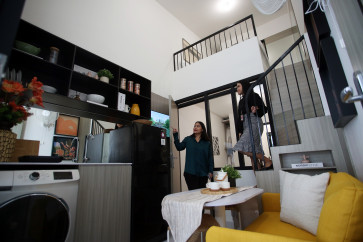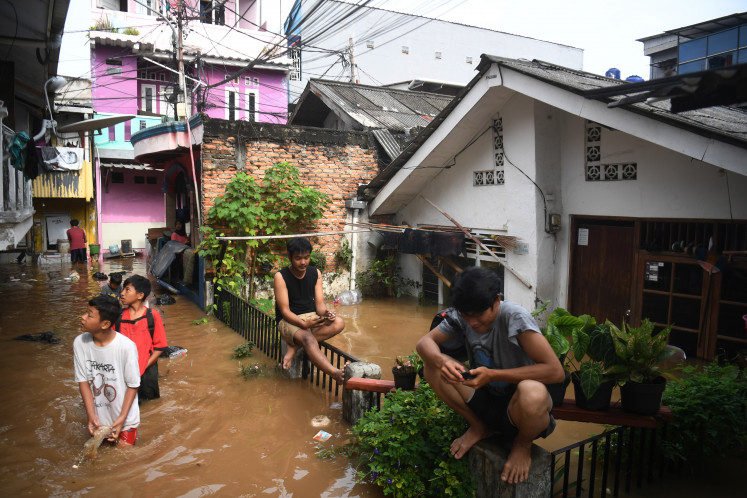Popular Reads
Top Results
Can't find what you're looking for?
View all search resultsPopular Reads
Top Results
Can't find what you're looking for?
View all search resultsInformal cooperation supports diplomacy
Indonesia remains upbeat about concluding a code of conduct (COC) in the South China Sea (SCS) in 2017, with Jakarta pitching initiatives to move forward negotiations around competing claims over maritime features in the area
Change text size
Gift Premium Articles
to Anyone

I
ndonesia remains upbeat about concluding a code of conduct (COC) in the South China Sea (SCS) in 2017, with Jakarta pitching initiatives to move forward negotiations around competing claims over maritime features in the area.
Countries involved in the SCS debacle are carefully stepping around the elephant in the room by seeking alternative avenues of bilateral and multilateral collaboration, following months of tense lobbying through ASEAN to ensure regional peace and stability.
Indonesian diplomats emphasized on Wednesday the importance of utilizing informal channels — dubbed the one-and-a-half-track diplomacy — to promote dialogue, build trust and help manage conflict in the disputed areas.
One the most recent initiatives proposed by Indonesia to achieve a clear and timely conclusion of the COC by 2017 was the plan to convene an informal senior officials meeting (SOM) in Indonesia, said Desra Percaya, the Foreign Ministry’s director general for Asia-Pacific and African affairs.
“We are still working with Singapore as the focal point of the ASEAN-China dialogue [to come up with a more concrete plan and timeline],” he said on the sidelines of a workshop in Bandung, West Java.
As a non-claimant state in the SCS, Indonesia would be able to host the meeting as an honest broker, pursuant to a commitment Jakarta has reiterated time and again “to conduct joint cooperation projects on development and resources management”, he said.
And while the proposed meeting was “still in the making,” Desra expressed hope it could soon be done. He assured that claimant parties — Malaysia, Brunei, Vietnam, China, Chinese Taipei and the Philippines — were willing to expedite the process of creating a COC.
After agreeing to set aside a divisive arbitration ruling, this year’s ASEAN Summit in Laos produced a preliminary framework for the COC, a regional hotline of communication for maritime emergencies and the reiteration of a shared commitment to maintaining peace and stability.
In addition to the SOM proposition, Desra emphasized the 26th Workshop on Managing Potential Conflicts in the SCS, which he opened on Wednesday, as another example of an informal process that contributes positively to the SCS debate.
The workshop, which has existed for more than 25 years, had played an important role in promoting mutual understanding among its participants through constructive dialogues and concrete joint projects, said Desra.
Initiated by senior maritime expert and former diplomat Hasjim Djalal, the workshop features a novel approach of engagement, in which participants do not represent their respective countries in an official capacity, thus allowing greater freedom to speak and collaborate.
Siswo Pramono, the Foreign Ministry’s resident policy analyst and chief researcher, said informal processes like the workshop provided opportunities for state negotiators to better understand other countries’ diplomatic stances.
“We can help resolve first-track diplomacy problems in the SCS, even though the workshop itself is not designed to resolve [the competing claims],” he said.
Commenting on the effectiveness of the informal workshop model, Siswo said it could be further improved by strengthening coordination among participants and adding a monitoring element to ensure the success of initiated joint projects.
Siswo revealed a number of initiatives emerging from this year’s workshop, including an agreement to develop a shared online database for maritime issues and a study of sea level change in the SCS.
The workshop was preceded by a technical working group meeting that focused on issues of climate change and its environmental impact on SCS littoral states, which constitutes another form of strengthening regional relations.









